When being a self-taught chef is an advantage
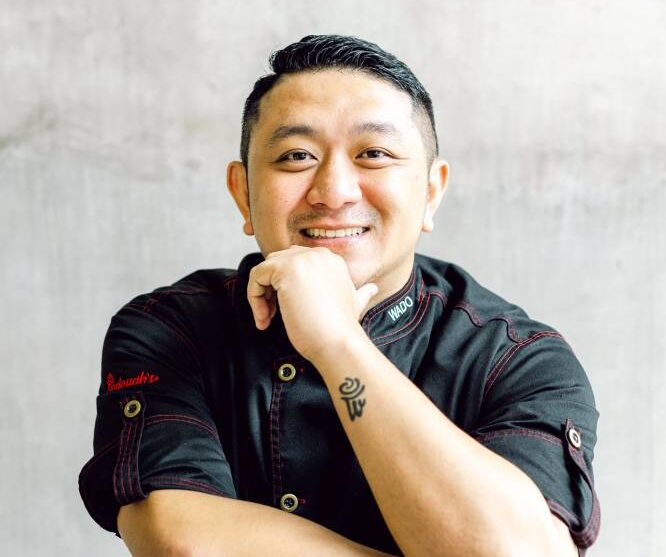
Wado Siman holds a degree not in culinary arts but in communication arts. His first proper job wasn’t in the kitchen but in television where he—as a video editor—chopped footage, not onions. So when, three years in, he realized that a career in broadcasting wasn’t really for him and decided to finally pursue his unrealized passion for cooking, his credibility was often called into question.
“That was actually the most challenging thing when I was just starting out. ‘Where did you study? Where did you graduate?’ That’s what people always ask me about,” he tells Lifestyle Inquirer.
Siman is a self-taught chef and baker, whose family has always been in the restaurant business. So it wasn’t like he jumped in blindly or on a whim. “I knew the basics and I have developed my taste buds to know what tastes good or not,” says Siman, who also once turned to YouTube for recipes he could recreate. And to make up for his lack of a diploma, he took a different but familiar route: television.
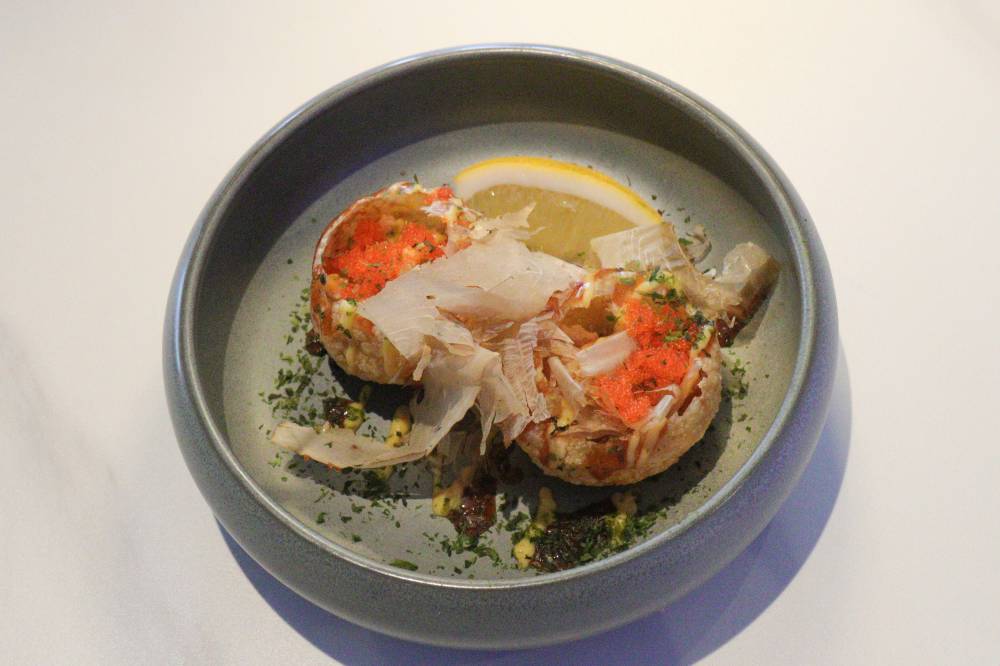
In 2014, determined to prove to himself that he could still whip up something delicious without formal culinary education, he joined the reality contest “The Clash: Search for the Next Great Dessert Master,” where he finished fourth. A year later, he won the grand prize in the Pitch Tuesdays tilt for food startups.
“At least when I open my own bakeshop, people will be like, ‘Oh, he was the winner of that competition,’” relates Siman, who worked behind the scenes at ABS-CBN and on several programs for TV5, including the gag show “Wow Mali!”—where he played, yes, that English-speaking pedicab driver in a prank whose video still pops up on social media once in a while.
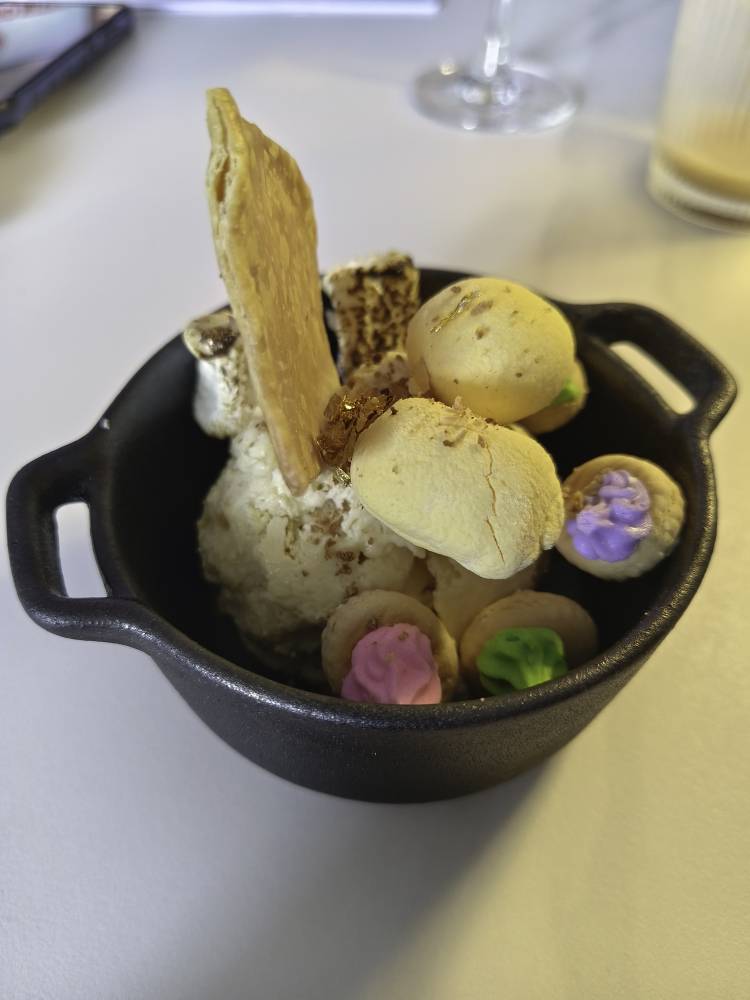
No ego to protect
His cake studio, Wadoughs, has since become popular for its minimalist cake designs. He’s also behind the Asian-Mediterranean concept Atina Cafe, and his latest venture, Brutal, which features his reinterpretations of international comfort food. Still, despite his growing experience and business expansion, he runs into skeptics who turn up their nose at his way of doing things.
But he doesn’t mind. In fact, he says, it’s in those very instances that being self-taught can actually become an advantage because there’s no ego or tradition to protect.
“I don’t get offended by negative comments or when I’m told my technique is wrong, because I’m not formally trained. I’m not bound by the book. I take all feedback as something I can learn from,” he says. “As long as I come up with something delicious and comforting, then I’m good.”
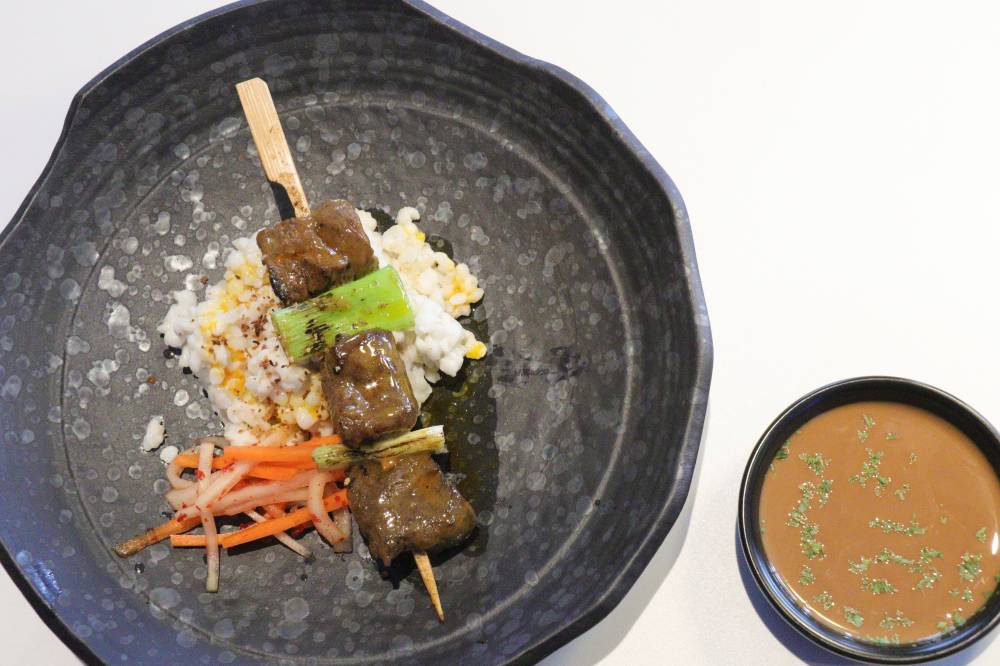
His knife skills, for instance, are pretty much nonexistent, he jokes. He takes care of the flavors and everything else, but he cheekily admits that filleting is left to his staff—whom he learns from just as much as they learn from him.
And he’s not ashamed to say it. After all, running a restaurant is a collaborative effort. “It’s all about give and take,” he stresses.
What he knows about cooking, he learned from experience, from mentors he admires, from people he has met, and from all the places he has dined at. And if there’s one thing from his television work that translated into his craft, it’s confidence. There’s no place for half-heartedness in the kitchen.
Once the dish comes out, there should be no second-guessing.
“I take pride in what I do. It’s one thing to cook well; showcasing your work is another,” he says.
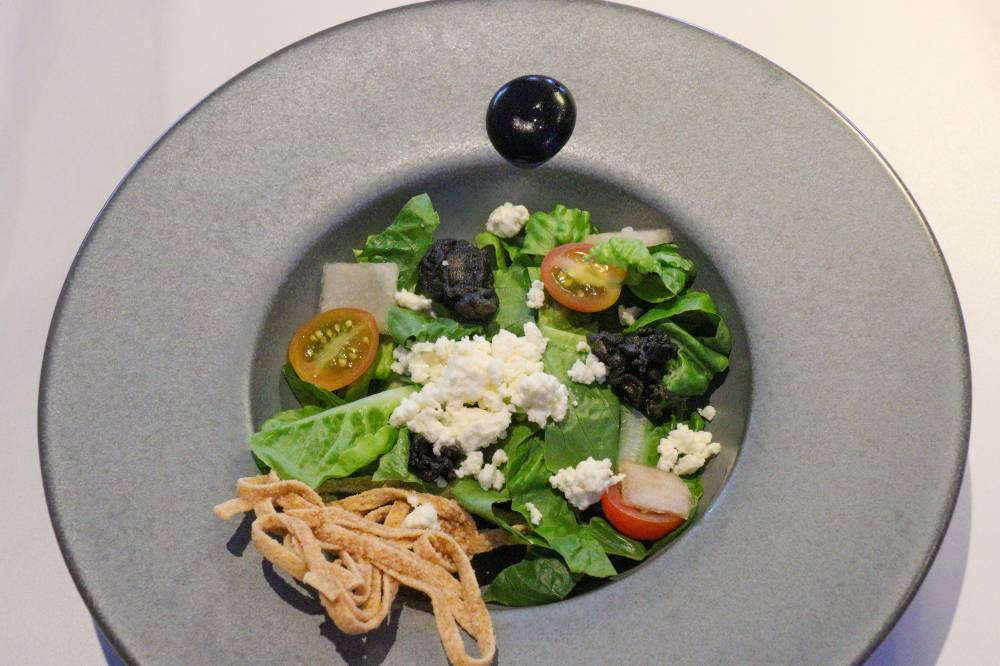
Because he’s not rigid with his methods, he doesn’t have hangups about doing things that others might scoff at as sacrilege or shortcuts. For one, Siman isn’t averse to using ready-made condiments. “It’s a common notion, especially among chefs, that not making something from scratch can make you appear less skilled,” he says.
Instead, he sees this as an opportunity to push his creativity and be more playful in the kitchen. At a recent tasting event he hosted together with Clare Olé at Brutal, he repurposed pasta sauces as marinades and salad dressings—elevating something convenient into something more imaginative across five courses.
Black Tide was a refreshing start: squid, feta, fried pasta, and slivers of crisp apple—all brought together by a squid ink vinaigrette. The hearty little flavor bombs called Not Takoyaki were pani puri shells filled with salmon flakes, mashed potato, and a cheesy crab sauce. Gochujang butter gave the Duckgalbi Assassina—a fusion tomato pasta dish with glazed duck breast—a rich, tangy kick.
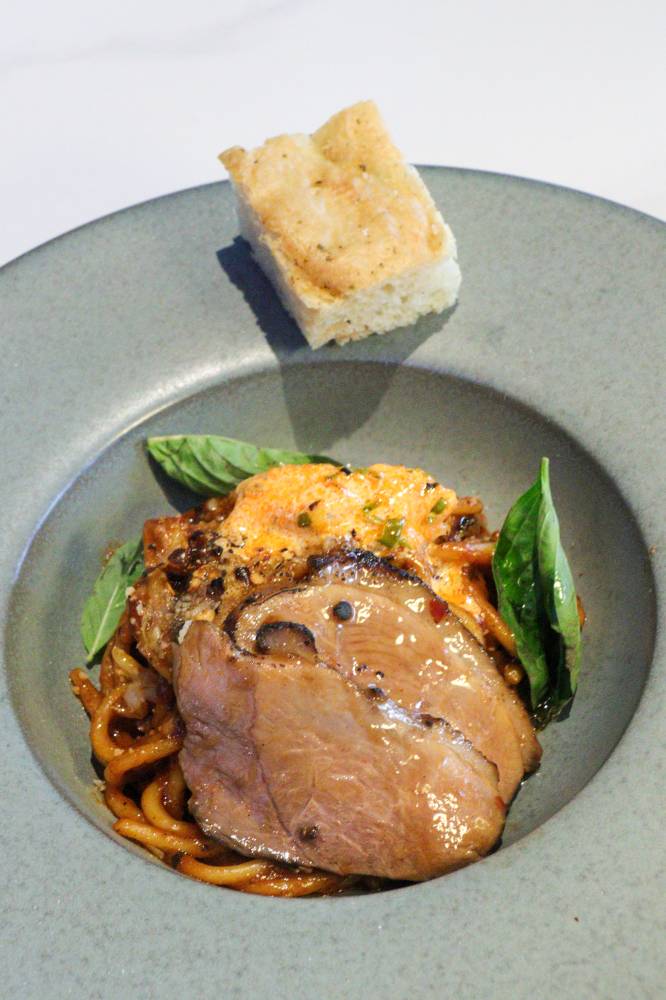
Siman’s take on beef inasal arrived as tender beef cube skewers laid atop a bed of fragrant adlai coconut rice. The dessert, the Peach Mango Nitro, was half science experiment, half throwback—with blast frozen marshmallows and those Iced Gem biscuits that instantly conjured memories of childhood.
While it was apparent that the dishes took a lot of thought and experimentation, they were ultimately reflective of Siman’s affinity for comfort food. And if he could impart a piece of advice to aspiring cooks—or anyone who doesn’t want to feel helpless in the kitchen—it’s this: Think of the one dish that always brings you comfort and learn how to make it.
Because that, Siman says, is a form of self-love. “For me, that’s soup. It’s the one thing I reach for when I’m feeling tired, so it always has to be present and accessible at home. If you can whip up your own dishes, you don’t have to depend on others to find that comfort,” he points out.
“I’m my first customer. I have to cater to what I need,” he says.

















